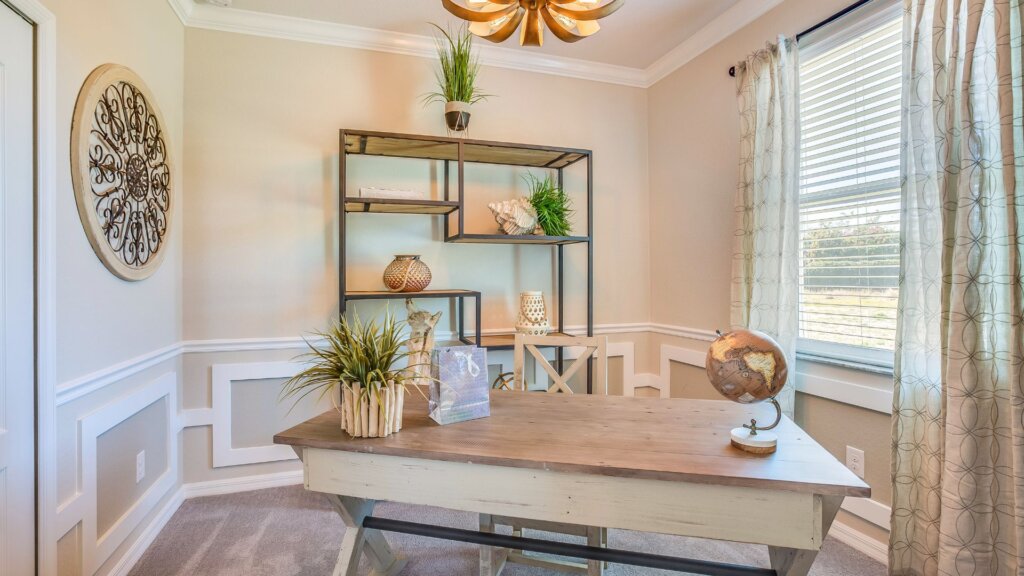
Thinking about selling your home in Georgia? One of the first and most important decisions you’ll face is simple to ask but tricky to answer: What’s the right price?
Price your home too high, and it could linger on the market while buyers scroll past. Price it too low, and you might get quick offers, but you could end up leaving money on the table. The goal is to find that sweet spot where buyers are motivated, competition is strong, and you walk away with the best possible return.
Why Price Matters More Than You Think
When buyers start looking, the very first thing they notice is price. Before they even click on your listing photos or read about your upgrades, that number is front and center.
Since most Georgia buyers start their search online, your home is immediately compared side by side with dozens and sometimes hundreds of others.

Imagine this: two nearly identical homes in Rome, each with three bedrooms, two bathrooms, and updated kitchens. One is listed at $425,000 and the other at $475,000. Most buyers scrolling through Zillow or Realtor.com are likely to skip past the higher priced home. We’ve seen this happen firsthand: two homes in Rome, similar in size and features, were initially listed $50,000 apart. The higher priced property lingered on the market for over three months, and it eventually sold for $5,000 less than the competitively priced home, which sold within just two weeks. This shows how pricing strategically from the start can save time and help you get the best return.
Data from Zillow research and local MLS reports consistently show that homes priced above the market range attract fewer showings and spend longer on the market, which can affect the final sale price.
Georgia’s Housing Market: What Every Seller Needs to Know
Here’s the tricky part: Georgia’s housing market is not one size fits all. What works in Atlanta may look very different in Rome, Cedartown, Calhoun, and other Northwest Georgia towns.
In Atlanta, buyers often compete fiercely for homes close to job centers, MARTA stations, and top-rated schools in the suburbs. In cities like Rome, Cedartown, and Calhoun, buyers often value space, affordability, and a strong sense of community. People moving to Rome might want to be near Shorter University, Atrium Health Floyd Medical Center, or Ridge Ferry Park. In Cedartown, access to Highway 278 and strong schools like Cedartown High School can be a major selling point.
Even within the same city, prices can vary quite a bit. In Calhoun, for example, homes one school district might sell for more than similar homes in another school district, all because of the schools’ test scores.
Key Pricing Factors Every Georgia Seller Should Know
Several things shape how buyers see your property, and in Georgia, what matters most can shift depending on the area. A good place to start is local market conditions. That’s where a Comparative Market Analysis, or CMA, comes in; it shows what similar homes have sold for recently.
A CMA is a report REALTORS® create by analyzing recently sold homes that are similar in size, style, age, and location to your property. They also look at current listings and pending sales to understand competition. REALTORS® consider factors like square footage, number of bedrooms and bathrooms, lot size, condition, and upgrades. This data helps determine a fair and competitive price, giving sellers a realistic picture of what buyers are likely to pay if the home is marketed effectively.

If your neighbor’s ranch sold for $350,000, pricing yours at $400,000 without meaningful differences may turn buyers away. Trends in prices, whether they are rising, holding steady, or slipping, also matter when setting expectations.
Beyond the numbers, the neighborhood itself plays a big role. After all, buyers don’t just purchase a house; they’re buying into a community. Commute times to job hubs, school test scores, access to parks and shopping, and even the overall feel of the neighborhood can influence how much someone is willing to pay.
Condition and upgrades also matter a lot. Move-in ready homes often sell faster and can bring in more money. In cities like Rome, Calhoun, and Cedartown, practical updates such as a new roof, HVAC system, or durable flooring may be more appealing than luxury finishes.
Size and features naturally factor into value as well, but square footage is only part of the equation. A well-designed 2,000 square foot open floor plan can be far more appealing than a larger home with a choppy layout. Features like finished basements, home offices, or energy-efficient upgrades can also tip the scales in your favor.
How to Steer Clear of Costly Home Pricing Mistakes
Plenty of Georgia sellers make avoidable mistakes that cost them both time and money. Some rely too heavily on online estimates, which often fail to capture neighborhood nuances or unique upgrades. Others intentionally overprice to leave room for negotiation, but this can drive buyers away rather than sparking a bidding war. Many also skip important repairs or updates while still expecting full value, which rarely works in today’s market.
Perhaps the most damaging misstep is waiting too long to adjust when buyers show little interest. A home that lingers on the market for weeks grows stale, and once buyers start asking, “What’s wrong with it?” it becomes harder to recover, even after price reductions.
The Psychological Strategies That Help Homes Sell for More
Pricing is not just about numbers; it’s also about perception.
Most buyers filter their searches by price ranges. A home listed at $299,900 will appear in searches capped at $300,000, while that same home priced at $305,000 could be invisible to that whole group of buyers. Even a small difference can affect visibility and demand.
That is why strategic “just under” pricing often works so well. Buyers perceive it as a deal, even when the difference is only a few thousand dollars.
Why Appraisals Matter When Pricing Your Home
Even if you find the right buyer, the deal often comes down to one last hurdle: the appraisal. Lenders require appraisals to confirm a home’s value, and when an appraisal comes in low, the entire deal can be at risk. For instance, if a Rome home goes under contract at $410,000 but appraises for only $395,000, there is a $15,000 gap to resolve. Either the seller lowers the price, the buyer brings cash to closing, or negotiations start over again. In some cases, the deal simply falls through.

The Right Pricing Approach for Every Market Situation
The right strategy depends heavily on market conditions. In a seller’s market, where demand is high and inventory is low, slightly underpricing can generate multiple offers and spark bidding wars. In a buyer’s market, where inventory is plentiful, competitive pricing combined with incentives such as covering closing costs can help your home stand out. In a balanced market, the best strategy is usually to set your home at fair market value, which attracts steady interest without scaring buyers away.
The Power of Negotiation: Getting the Best Deal for Your Home
Your asking price is just the opening move. Negotiation is what brings the deal together.
In Georgia, buyers often expect some back and forth. A home listed at $350,000 may receive offers of $345,000 or even lower. In a hot market, you may have the leverage to stand firm. In a slower one, a little flexibility can make the difference between closing a deal and losing a serious buyer.
Presentation Matters: Simple Ways to Raise Your Home’s Worth

Presentation is powerful. A staged home feels more valuable than an empty or cluttered one. Staging highlights a home’s strengths, softens its flaws, and helps buyers picture themselves living there. For example, a staged property in Rome sold for $15,000 more than comparable unstaged homes in the same area. Even small updates like fresh paint, new light fixtures, or tidier landscaping can make buyers feel the home is well cared for and move-in ready.
Homes that show well often sell faster and for higher prices, showing how strategic staging can have a measurable impact. By referencing real past sales or trusted data, sellers can see that investing in staging is not just cosmetic; it can directly influence buyer perception and the final sale price.
The Best Times to List Your Home in Georgia
When you list your home matters almost as much as how you price it. Statewide, spring and summer are the most active seasons. Fall tends to remain steady in metro areas where job relocations drive demand. Winter is typically slower, though motivated buyers during colder months are often more serious and ready to move quickly.

In Northwest Georgia towns like Rome, Cedartown, and Calhoun, seasonality has less impact. Many buyers relocate for work in healthcare, education, or manufacturing, so demand tends to stay consistent throughout the year.
Cash vs. Traditional Sales: Which Gets You the Best Deal?

Not all offers carry the same weight. Cash buyers, common in metro areas, can close quickly, avoid appraisal issues, and remove financing risks. However, they often expect a discount in return for speed and certainty.
Choosing between a cash offer and a financed one usually comes down to priorities. If you need to close fast, cash may be worth the trade-off. If maximizing your sale price is the main goal, a financed offer could be the better choice.
Learn from Others: How Pricing Decisions Affect Your Sale
In Rome, a couple reviewed their CMA and priced their home at $399,900. Within one weekend, they received five offers and ultimately sold for $410,000, well above asking.
In contrast, a homeowner in Cedartown listed their property nearly $40,000 above comparable homes in the same neighborhood. The home sat on the market for months, underwent several price reductions, and ultimately sold for less than it could have if it had been priced competitively from the start.
Homes priced in line with market expectations attract more buyers, spend less time on the market, and often achieve higher final sale prices. By referencing real past sales and trusted data sources, sellers can make confident pricing decisions and avoid the pitfalls of overpricing. For more guidance, see our Selling Your Home Ultimate Guide.
FAQs: Answers to the Most Common Pricing Questions from Georgia Sellers
Should I price higher to leave room for negotiation?
Overpricing usually backfires. Fair pricing usually attracts more offers, which can naturally push your final sale price higher.
What if my home does not appraise?
You may need to renegotiate, lower your price, or ask the buyer to cover the gap.
How often should I lower the price?
If a couple of weeks go by with little interest, or 10 to 15 showings don’t lead to an offer, it’s probably time to reevaluate.
Do upgrades really make a difference?
Yes. Kitchens, bathrooms, outdoor spaces, and curb appeal tend to deliver the strongest returns.
Is there a best time to sell in Georgia?
Spring and early summer are the strongest months, but job-driven areas like Rome, Cedartown, and Calhoun often see steady demand throughout the year.
Final Thoughts
Pricing your Georgia home is not just about picking a number. It’s about understanding the market, appealing to buyer psychology, and timing your listing strategically. When done right, smart pricing attracts serious buyers, helps your home sell faster, and maximizes your return.
At Prestige Home Brokers, we specialize in helping homeowners in Rome, Cedartown, Calhoun, and other Northwest Georgia towns find the perfect pricing balance. With deep local knowledge and up-to-date market data, we create personalized strategies to fit your goals.
Ready to sell smarter? Reach out today for a free, personalized market analysis and let us help you price your home with confidence. You can reach out by filling out our online form or giving us a call at 678-747-9930.
